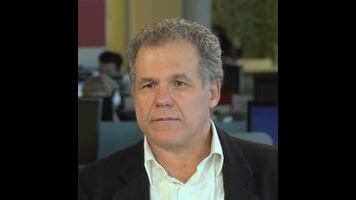The Comedy Of Existence probes the layers of Groucho Marx’s one-liners

Lee Siegel’s Groucho Marx: The Comedy Of Existence opens with an image of its subject in profile, a photo of a man who is unrecognizable. Absent is the famous greasepaint mustache, the familiar glasses, the comic’s bushy eyebrows or ever-present cigar. Everything iconic about Groucho, who has one of the most famous faces of all time, has been stripped away, leaving behind a pensive, somewhat-anxious looking fellow. It’s an appropriate note for Siegel to start on, as his book is similarly interested in looking past the familiar Groucho Marx to various other elements of his persona.
This is more a work of analysis, in other words, than a work of biography, and some familiarity is needed going in. Siegel provides a few telling anecdotes—including an incident where smart-ass answers on a customs form leads to Marx and his children getting strip-searched—but those wanting a life story should look elsewhere (Stefan Kanfer’s Groucho is pretty good). Siegel is writing for experts more than beginners, referencing bits without describing them in depth, so unless you’ve seen all the films and have an encyclopedic memory, prepare to read this with YouTube handy (and then prepare to waste hours watching Marx Brothers routines).
The Comedy Of Existence briefly recounts how the Marx Brothers were groundbreaking and influential, but rather than rehashing familiar comparisons, it focuses on what their humor meant. Pivoting off D.H. Lawrence’s advice to “never trust the teller, trust the tale,” Siegel concerns himself with the jokes over the jokesters, divining a worldview based on who the brothers respected in their films, and who wound up as the butts of the bits.
This first involves recognizing that the Marx Brothers’ allegiances or philosophies weren’t always clear or simple. Yes, Duck Soup is an attack on autocratic systems, but what to make of the sequence where Harpo and Chico harass a lemonade vendor who was just minding his own business? Or, contrary to Groucho’s reputation as an anti-authoritarian figure, note The Cocoanuts, where his hotelier is introduced fast-talking his way out of paying bellboys their owed wages. “By the end of the scene, you have no idea whether the target of satire is the boss or his employees, capitalism or ordinary working people,” Siegel writes. Between Marx’s not wanting to join any club that would accept him as a member, or the “whatever it is, I’m against it” platform of his Duck Soup dictator, Siegel explores the layers in the one-liners.
This exploration is critical but fair. Full weight is given to the question of whether Marx Brothers comedy was misogynistic in its endless aggression and violence toward women. (Like the lemonade vendor, Margaret Dumont’s wealthy dowagers were scarcely deserving of the scorn they received.) Siegel doesn’t endorse this view—“perhaps it is too much to expect men who abuse, insult, and degrade anyone and everyone around them to be selective about the way they demonstrate their hostility”—and offers a feminist counterpoint that the animosity is “an expression of male weakness, not male strength.” It’s commendable that Siegel raises the issue and interrogates it; although he clearly loves the work he’s writing about, this isn’t a blind hagiography.
The Comedy Of Existence—a title whose thesis could stand to be fleshed out more—is being published as part of Yale’s Jewish Lives series, but the sections most explicitly dedicated to viewing Marx through a specific cultural prism are among the book’s weakest. Because Siegel doesn’t fully express what he considers Jewish philosophy to be, a chapter called “Groucho The Jewish Philosopher” naturally wants for context. To the extent there is a Groucho philosophy, Siegel is far more convincing at seeing it in response to Marx’s childhood family dynamics and lack of education, as opposed to his religious or cultural upbringing.
The discussion of these types of issues speaks to the high level of insight that Siegel aims to bring to his analysis. Although of little interest to non-fans, for the rest of us, this volume is a valuable addition to the still-thin body of work that looks at comedy in a serious way.